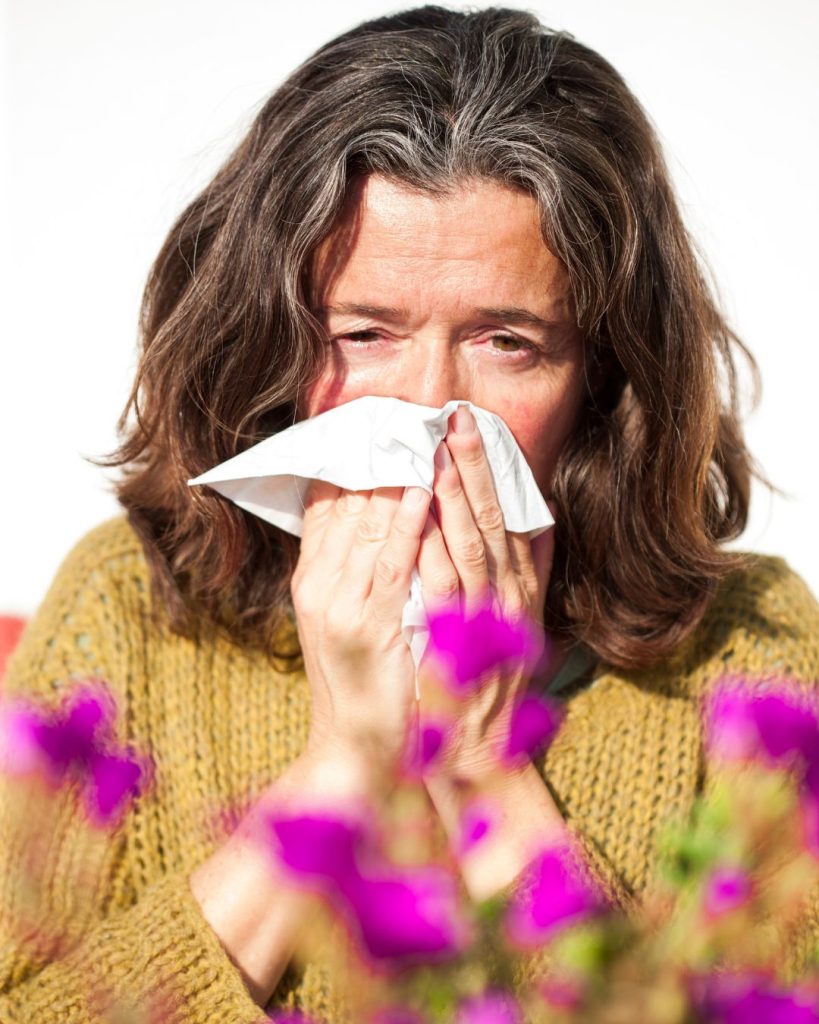
The latest research not only demonstrated clear evidence that the immune system changes as a result of Acupuncture. It also showed that this natural intervention continued to improve symptoms for several weeks (even up to 3 months!) after the treatments ceased (1,2).
Can you think of any other kind of treatment that could claim the same? Or even one without harmful side effects that can lead to additional problems? Whereas Acupuncture has a strong reputation as a safe intervention and is considered cost effective in the treatment of hay fever according to a German study (Witt et al, 2009).
According to the research 86.1% of participants showed significant improvement in quality of life and symptoms. Other studies support these results with positive effect rates between 84.6-95.8% (3).
Even 6 months after treatment ceased, although symptoms were starting to creep back slowly, participants in the study were still significantly better than before the study.
A short course of “top up” treatments is recommended if symptoms begin to come back after 3 months.
The most improved symptoms in this hay fever study were: nasal itch, sneezing, nasal congestion, running nose, unrefreshed sleep and eye itch. In this particular study post-nasal drip and sinus pain did not change.
It is important to note that all prior studies that treated with Acupuncture less than twice a week and less than 12 treatments achieved far inferior results. Acupuncture is dose-dependent, so it is important to commit to the right amount of treatment. In this successful study participants received treatment twice a week for 8 weeks.
About Allied Acupuncture Gold Coast
PH: 07 5522 1691
W: www.alliedacupuncture.com.au
A: 7a / 2 Executive Dr, Burleigh Waters QLD 4220
Gold Coast acupuncture clinic Burleigh Waters. Located near the major intersection of Reedy Creek Rd and Bermuda St, near Treetops Shopping Centre and Bunnings.
We’re 15km or 20 minutes from the Gold Coast Airport and 13.4km from Surfers Paradise. Midway between the M1 Motorway and the Gold Coast Highway at Burleigh Heads.
The clinic has FREE off-street parking, wheel chair access and toilet facilities.
SAME DAY ACUPUNCTURE APPOINTMENTS AVAILABLE:
Book online any time 24/7 or call our answering service Monday to Friday 9am – 5pm for same day appointments on 0755221691. Book an Initial Consultation and Treatment then look for your welcome e-mail.
An Initial Consultation and Treatment with Dr Scott Baker (Acupuncturist) involves discussing your health history, followed by a physical assessment, diagnosis and acupuncture treatment.
Diagnosis involves palpation of the problem area and possibly the abdomen and/or arms and legs. Chinese Medicine may also involve looking at your tongue and checking your pulse where indicated.
Available treatments:
Acupuncture and Chinese Medicine Clinic Gold Coast
Find an AHPRA Registered Acupuncturist near you – search ‘acupuncture near me.’ Servicing:
References:
1. McDonald, J.L., Cripps, A.W., Smith, P.K., Smith, C.A., Xue, C.C. & Golianu, B. (2016) Effect of acupuncture on house dust mite specific IgE, substance P, and symptoms in persistent allergic rhinitis Annals of Allergy, Asthma & Immunology (116),6: 497–505
http://dx.doi.org/10.1016/j.anai.2016.04.002
2. McDonald, J.L., Cripps, A.W., Smith, P.K., Smith, C.A., Xue, C.C. & Golianu, B. (2013) The Anti-inflammatory Effects of Acupuncture and Their Relevance to Allergic Rhinitis: A Narrative Review and Proposed Model. Evidence-Based Complementary and Alternative Medicine, Vol 2013, Article ID 591796.
http://www.hindawi.com/journals/ecam/2013/591796/
3. McDonald, J.L., Cripps, A.W., Smith, P.K. (2015) Mediators, Receptors and Signalling Pathways in the Anti-Inflammatory and Antihyperalgesic Effects of Acupuncture. Evidence-Based Complementary and Alternative Medicine, Vol 2015, Article ID 975632.